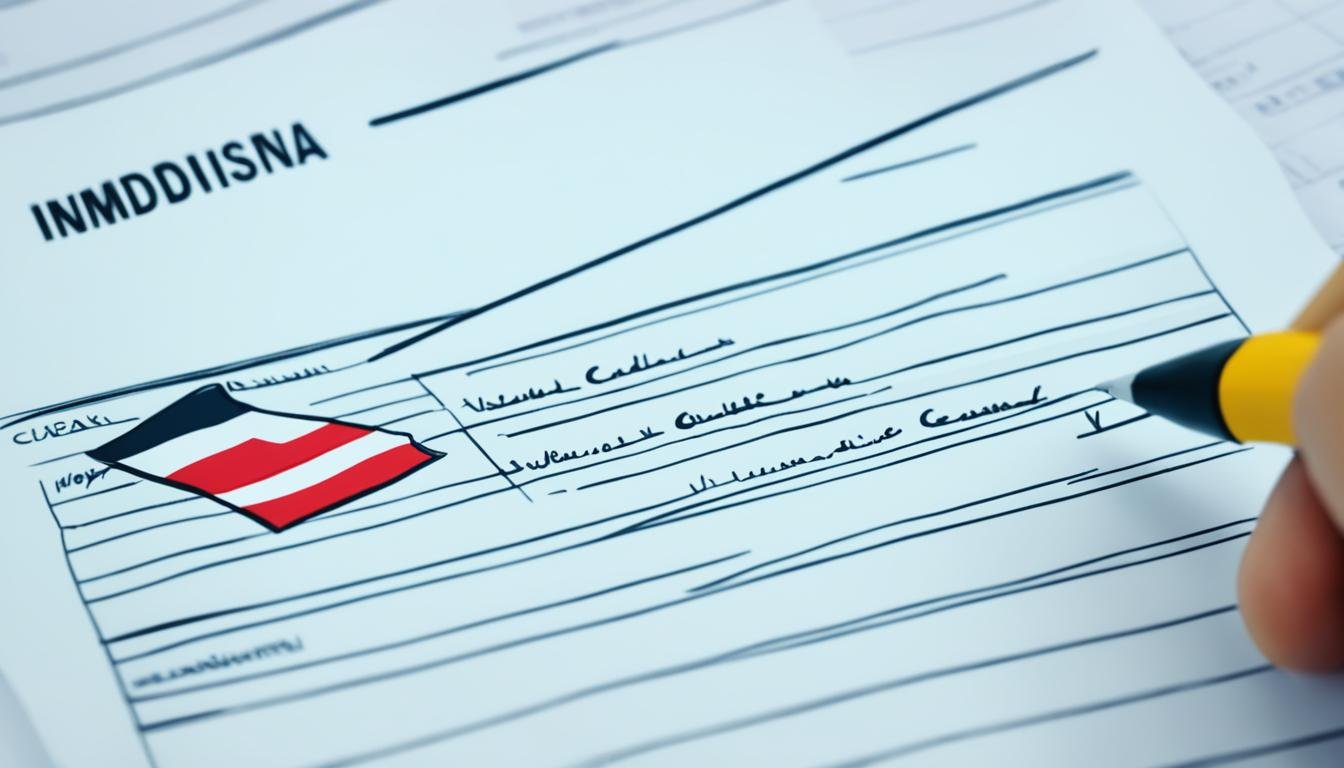How to start a business in Indonesia
Indonesia boasts the biggest economy in Southeast Asia, growing at 5% each year. This fast-growing market offers many chances for new businesses to thrive. Whether you’re from Indonesia or another country, starting a business here involves several important steps.
There are three main business options to consider: Local Company (PT), Representative Office (RO), and Foreign-Owned LLC (PT PMA). Each type comes with its own benefits and rules. You need to pick the best one for your business idea. You’ll also need to choose a name, create company regulations, and handle various registrations.
For foreigners, it’s crucial to know about Indonesia’s rules on foreign ownership. There are specific sectors where foreign ownership is limited. The journey through these regulations might seem complex. Yet, with the correct help and preparation, you could finish setting up in 1 to 3 months.
Key Takeaways
- Indonesia’s economy is the largest in Southeast Asia, growing at 5% annually.
- The key business structures in Indonesia are PT, RO, and PT PMA, each with their own benefits and rules.
- The registration process involves steps like choosing a name, creating regulations, getting approvals, and making registrations.
- Foreign investors need to be mindful of Indonesia’s Positive Investment List and sectors with ownership limits.
- Depending on how prepared you are and how quickly the government responds, the registration process can take 1 to 3 months.
Choosing a Business Structure
When starting a business in Indonesia, you have three key options: Local Company (PT), Representative Office (RO), and Foreign-Owned LLC (PT PMA). Each one has its own benefits and drawbacks. It’s vital for foreign investors to know these differences before starting in Indonesia.
Local Company (PT)
A PT is the main business type in Indonesia, meant only for those from Indonesia. Yet, if you’re a foreigner, you can work with a PT owner using a Nominee Company Agreement. PTs have lower costs to get started, provide protection against big losses, and it’s easier to get funds. But, there are downsides too like a complex setup, taxes on stock earnings, and the challenge of not having full ownership as a foreigner.
Representative Office (RO)
For exploring the market or growing your brand in Indonesia without a big financial risk, an RO might be your best bet. They are cheap to set up, but they can’t make money. This means the scope of what they can do is restricted.
Foreign-Owned LLC (PT PMA)
A PT PMA allows full ownership for foreigners and has easier rules on permits and taxes for imports. But, it requires a significant initial investment of $1 million and you have to deal with monthly tax paperwork.
Reserving a Company Name
The first big step in starting a business in Indonesia is choosing a name. You have to do this with the Ministry of Law and Human Rights (MOLHR). It’s important because you need to follow certain rules to make sure the name is ok.
Guidelines for Company Name
The name should use letters from the Latin alphabet and be totally new. It shouldn’t go against what’s accepted in public or be wrong in any way. Making sure your name follows these rules is key for it to be approved.
Approval from Notary Public
Once you’ve got a name reserved, a Notary Public has to give it the okay too. This means your business is recognized and can move forward legally. With this notary public approval Indonesia, you’re on track for business operations.
Drafting Articles of Association
The Articles of Association (AOA) is key in Indonesia for businesses. It lays down rules and procedures for them. Knowing these rules well is a must for anyone starting a business there, especially if you’re from abroad. The AOA should be signed before a notary public and submitted to the Ministry of Law and Human Rights (MOLHR) within 60 days.
Purpose of Articles of Association
The purpose of the AOA is to outline how a company will work in Indonesia. It talks about what the company aims to do, its share capital, who’s in charge, and how big decisions are made. This helps the company stay within the law and follow Indonesian rules.
Submission to Ministry of Law and Human Rights
Submitting the AOA to the MOLHR online is how you usually do it. This step is super important for getting your business approved. The MOLHR needs to check and approve the AOA so your company can start working in Indonesia. It’s vital to submit the AOA correctly and on time to avoid delays.
Obtaining Company Approval
After submitting the Articles of Association (AOA), the Ministry of Law and Human Rights (MOLHR) reviews them. This step is crucial for getting company approval Indonesia. Within 14 days, the MOLHR informs the employer if the application is okay.
When the review process ministry of law and human rights Indonesia finishes and the application gets approval, the company can start its business in Indonesia as an LLC. This okay is a big part of registering the business. It means the company can start working in the country.
Registering Company Domicile
After getting the green light from the Ministry of Law and Human Rights, the next thing is company domicile registration Indonesia. This means listing the business’s official address with the local sub-district office. It’s important because the Indonesian government lets these local offices make certain rules.
Listing the business’s address has many uses. It shows where the business really is, needed for legal and tax reasons. The sub-district office also checks that businesses follow local laws.
Listing the company domicile Indonesia helps the business get official papers and permissions. This makes the business legally sound and part of the local business scene. It also means the office is there to help and work with the business, building community connections.
So, the company domicile registration Indonesia step is key for starting a business in Indonesia. It meets legal rules and gets the business ready for the local market. This is important for the business’s future success and connection with the community.
How to start a business in Indonesia
After getting the company address, you need to take the next big steps. This involves getting the right tax and legal approvals. You must get a tax registration number and list your company with the Ministry of Law and Human Rights (MOLHR).
Obtaining Tax Registration Number
To run your business legally, you need a tax number in Indonesia. This number, called a Nomor Pokok Wajib Pajak (NPWP), is from the local tax office. It’s key for paying taxes, sending invoices, and managing money.
Registration with Ministry of Law and Human Rights
At the same time, the notary who helped set up your company will do a big job. They’ll file your business with the MOLHR if they are acting on behalf of the founders. This makes your company a limited liability entity (PT) in Indonesia. Now your company can start its corporate life.
Getting the tax number and being listed with the MOLHR are key legal steps. With these, your new business is ready to start working in Indonesia. You’ll also need to get other approvals and permits depending on your business field and what you do.
Securing Ministry of Trade Approval
After the Ministry of Law and Human Rights (MOLHR) gives approval, the next step is the Ministry of Trade. Getting this approval is a vital step for a business in Indonesia. It lets the company legally operate in the country.
Applying for Business Identification Number (NIB)
To get Ministry of Trade approval, use the Online Single Submission (OSS) system. It’s the key online spot for business licenses in Indonesia. The main goal at this stage is to get a Business Identification Number (NIB). It’s like a special ID for your business, allowing it to legally operate.
Having an NIB is a must for doing business activities. This includes getting other needed permits and paperwork. With the NIB, companies show they follow Trade Ministry rules. It makes everything about running the business in Indonesia smooth and legal.
Publishing Articles of Association
After getting needed permissions, the next big part of opening a business in Indonesia is publishing the company’s Articles of Association. You need to first submit the documents to the State Printing Office. Then, they get published in the State Gazette.
Submission to State Printing Office
The first thing is to hand in the approved Articles of Association to the State Printing Office. This office is in charge of officially registering the company’s core documents. Usually, the notary public who helped set up the company will handle this for you.
Publication in State Gazette
After handing in the Articles, they need to be published in the State Gazette. This publication marks the company’s legal start and recognition. The notary public must finish the publication within 14 days of getting the Articles approved.
The publication of articles of association Indonesia, submission to state printing office Indonesia, and publication in state gazette Indonesia are key parts of founding a business. By following these steps, your company becomes legal and recognized publicly, allowing it to operate fully in Indonesia.
Foreign Ownership Regulations

Foreign investors wanting to start a business in Indonesia need to know the country’s rules. These rules are in the Positive Investment List. It shows what percent of a business can be owned by foreigners. Also, it lists the types of businesses and the areas they can operate in.
Positive Investment List
The Positive Investment List helps foreign investors know how much of a business they can own. It’s updated often by the Indonesian government. This is to keep up with changes in the business world. When starting a business in Indonesia, it’s important for foreign investors to check the list. They need to make sure their plans follow the rules.
Sectors with Foreign Ownership Restrictions
Not all industries in Indonesia are open to foreign investment. Some, like media, telecommunications, and specific natural resources, have strict rules. These are seen as very important or sensitive. There’s a strong focus on keeping these sectors mainly for local businesses. So, foreign investors should do their homework. They should understand the sectors with foreign ownership restrictions in Indonesia before diving in with investment plans.
Knowing the foreign ownership regulations in Indonesia is key for foreign investors. This includes the Positive Investment List and the sectors with foreign ownership restrictions. With this information, they can better handle the rules and make smart choices when starting a business in Indonesia.
Timeline for Business Registration
Starting a business in Indonesia takes between 1 to 3 months. How long it takes depends on how ready your documents are and how fast officials work. If a company is well-prepared, they can start in under a month from document submission.
| Milestone | Timeline |
|---|---|
| Reserving the company name | 1-3 days |
| Drafting and submitting Articles of Association | 7-14 days |
| Obtaining company approval from Ministry of Law and Human Rights | 14 days |
| Registering the company domicile | 3-5 days |
| Obtaining tax registration number | 1-3 days |
| Securing Ministry of Trade approval and obtaining Business Identification Number (NIB) | 1-3 days |
| Publishing the Articles of Association | 14 days |
The timeline for business registration in Indonesia changes based on how prepared a company is and how quickly authorities act. A well-prepared business can begin within 30 working days of submitting documents to the government.
Conclusion
Starting a business in Indonesia has its share of pros and cons for foreigners. It’s important to know the different ways to structure your business, the laws, and rules about foreign ownership. This knowledge is key for a smooth start in Indonesia. Make sure to research well, follow all the government’s rules, and team up with local experts. This helps in getting your business up and running without hitches.
The take-home message here is for anyone eyeing Indonesia for business. This country opens doors to big growth opportunities, but it can be tricky to figure out the rules. When planning your business, think about the many ways you can set it up. Also, get to know what papers and permissions you need. And definitely, working with people who know Indonesia well can make a big difference. It sets you on a path for success in this up-and-coming market.
In a nutshell, starting up in Indonesia takes careful thinking, a sharp eye for detail, and readiness to fit into the local scene. This guide gives you a good head start. Use it to move forward and create a successful business in Indonesia.
FAQ
What are the main types of business structures in Indonesia?
In Indonesia, the main business structures are Local Company (PT), Representative Office (RO), and Foreign-Owned LLC (PT PMA).
What are the advantages and disadvantages of each business structure?
A PT is common and allows Indonesian citizens to own it. Foreigners can also own it through a Nominee Company Agreement. PTs need less money to start, protect you from losing everything, and get money easier. But, you might have to pay more taxes, it takes longer to start, and you won’t fully own it as a foreigner. An RO is good for exploring the market but can’t make money. A PT PMA lets a foreigner own it all, has easy rules and lower taxes on imports, but needs a big investment and more tax reports.
What are the guidelines for reserving a company name in Indonesia?
When you pick a name, it has to follow certain rules. It should be in Latin letters, not used before, and not bad or wrong. A Notary Public also has to agree on it.
What is the purpose of the Articles of Association (AOA) in Indonesia?
The AOA tells how a business runs in Indonesia. It gets signed by a notary and sent to the MOLHR within 60 days.
How does the company approval process work in Indonesia?
When you apply, the MOLHR checks your business and says yes within 14 days if everything is good. This step lets your company legally work in Indonesia.
What is the process for registering a company’s domicile in Indonesia?
Once you get approval, your business needs a formal address. You tell this address to the local government to get some local permissions.
What other approvals are required to start a business in Indonesia?
Next, you must get a tax number from the local office. The notary also sends papers to the MOLHR for your company. Then, you need permission from the Ministry of Trade using the OSS to get a special business number.
How are the Articles of Association published in Indonesia?
After you have all permissions, give your AOA to the State Printing Office. They will print it in the State Gazette within 14 days of your approval.
What are the foreign ownership regulations in Indonesia?
Foreigners should know the rules about how much of a company they can own in Indonesia. These rules tell what you can own in different types of businesses.
How long does the business registration process take in Indonesia?
Starting a business in Indonesia usually takes between 1 to 3 months. If all your documents are ready, you could start in less than 30 days.







